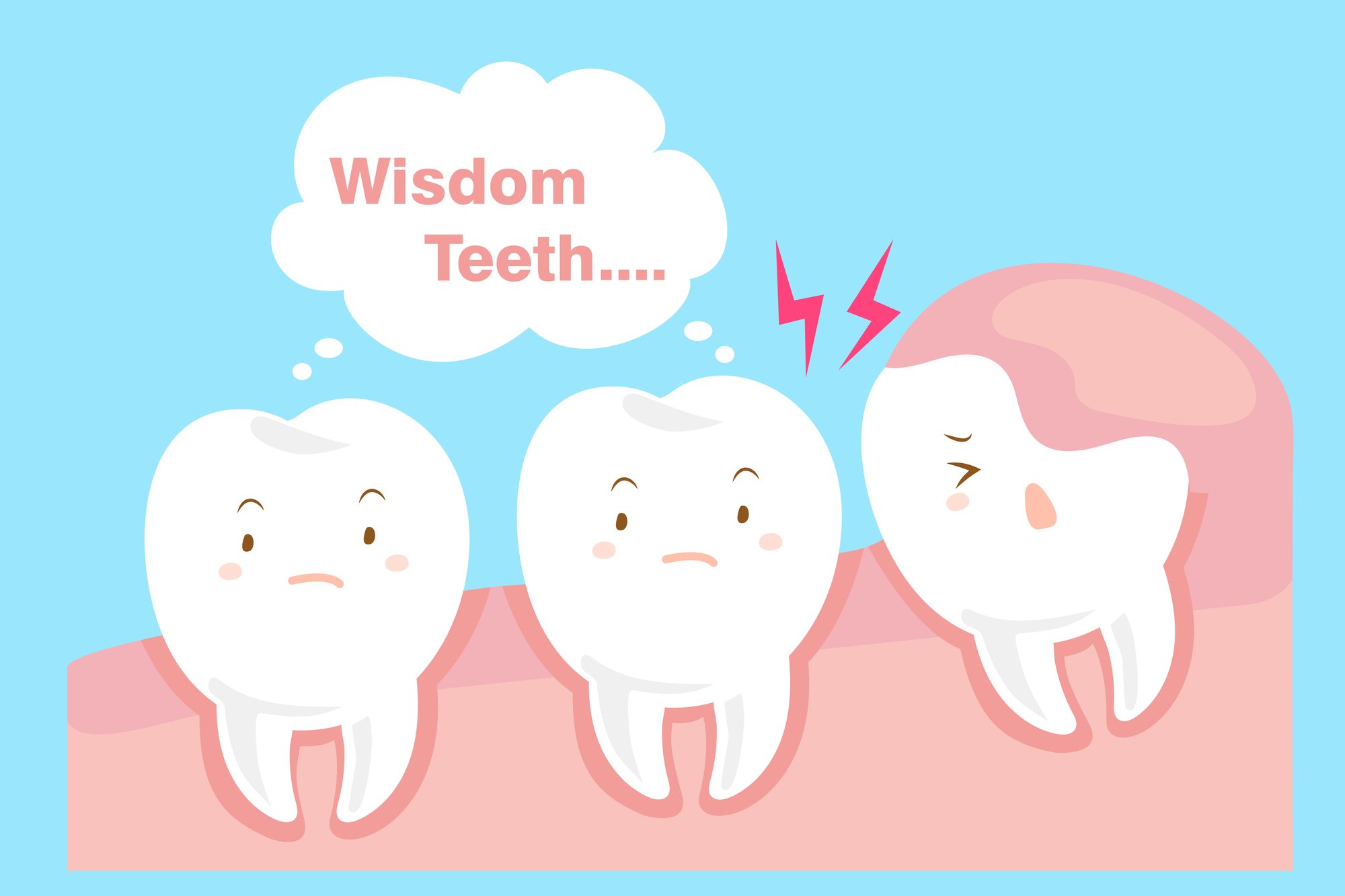
Wisdom teeth get their name because they develop between the ages of 17 and 25. These third molars used to be much more necessary than they are today. In fact, most people have their wisdom teeth removed soon after they erupt.
Long ago, people used wisdom teeth to break down raw vegetables and tough meats. Today, we cook our foods and use utensils to break them into bite-sized pieces. Because of this, our jaws have evolved so that wisdom teeth don’t always fit in the mouth properly, leading to several dental issues.
Want to learn more? Here are the most frequently asked questions about wisdom teeth:
1. Who needs to have their wisdom teeth removed?
When the third molars don’t have enough room to erupt, it’s called impaction. There are three types of impacted wisdom teeth:
- Soft tissue impaction means the gum tissue surrounding the tooth prohibits adequate cleaning.
- Partial bony impaction, meaning the tooth won’t function properly and creates cleaning problems.
- Complete bony impaction where there is not enough space for the tooth to erupt.
Impacted wisdom teeth cause several dental issues, including infection, damage, disease, and dental pain. Patients who experience these symptoms or have x-rays that show their wisdom teeth aren’t developing properly should have them removed as soon as possible.
2. Do all four have to be taken out at once?
No. Sometimes, one or more of the wisdom teeth will develop properly while the rest of them are impacted. In these instances, only the ones that are impacted need to be removed. If all four need to be taken out, the dentist or oral surgeon will most likely recommend one procedure to extract all four, but ultimately, the patient makes the decision.
3. What is the best age to have them removed?
The earlier the better. When it comes to oral surgery, younger people tend to heal much faster than when they are older. So, when a dentist predicts a patient’s wisdom teeth will be impacted, many patients choose to have them removed immediately. This could be as early as age 11!
4. Can I wait to have mine removed?
Yes. Patients can decide not to have their wisdom teeth removed at the time it is suggested by their dentist. However, those patients will likely develop the symptoms of impacted wisdom teeth and experience much more pain and discomfort than if they had them removed at their dentist’s recommendation.
In other cases, patients live their whole lives without too much trouble from their wisdom teeth.
5. Does the extraction hurt?
Dentists strive to make every dental or oral surgery as comfortable as possible. Most patients report feeling pressure and a little discomfort during their extraction but minimal pain. During the treatment planning appointment, the dentist and patient will discuss sedation and anesthesia to determine how much should be used on the day of the surgery.
6. How common are complications from wisdom tooth removal?
Complications from wisdom teeth extraction are few and far between. However, with any surgery, there are always risks. Dry socket is the most common complication. This occurs when a blood clot doesn’t form or is lost too early. A dry socket is dry and painful and inhibits healing and the formation of new bone.
Other rare complications include temporary loss of feeling in the lower lip, chin, and tongue and sinus complications. These issues typically resolve themselves on their own over time.
7. Does it take long to recover?
When patients follow their dentist’s recovery protocol, they can typically resume normal activities in three to five days. Complete healing can take up to two weeks.
Wisdom Teeth Extraction Coffs Harbour
Are you experienced unexplained dental pain? Have you been told recently that your wisdom teeth aren’t being cleaned properly? Our specialists at Magic Smiles are prepared to relieve your pain and restore your smile to health.
To schedule an initial consultation or to get a second opinion, contact our friendly dental team today at (02) 6652-3242.


